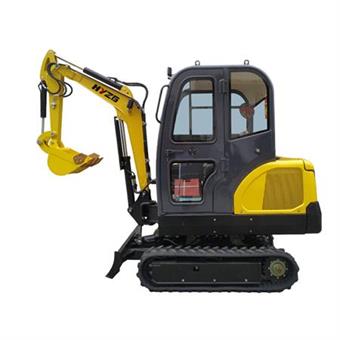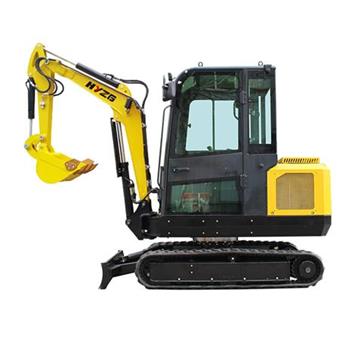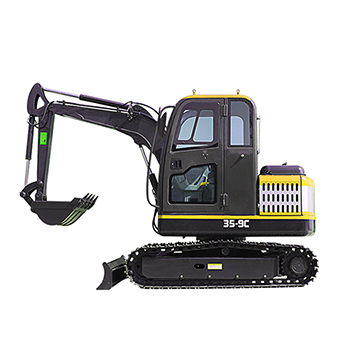
News
In today’s fast-paced construction and utility industries, hydro excavators—also known as vacuum excavators—are transforming how contractors approach digging and trenching. These machines use high-pressure water and a powerful vacuum system to safely remove soil, minimizing the risk of damaging underground utilities.
But one of the most common questions for project managers, equipment buyers, and contractors remains: “How much does a hydro excavator cost?”
Before investing, it’s crucial to understand the cost structure, from base price to customization and operational expenses.
Understanding What a Hydro Excavator Is
What Makes Hydro Excavators Unique
Hydro excavators combine water pressure and vacuum suction to dig precisely and safely. Unlike traditional mechanical digging, hydro excavation avoids damaging underground pipes, cables, and infrastructure.
Types of Hydro Excavators
Hydro excavators come in several configurations:
Truck-Mounted Hydro Excavators – Ideal for large-scale projects.
Trailer-Mounted Hydro Excavators – Compact and suited for smaller sites.
Compact or Portable Units – Perfect for municipal or light utility work.
Each type influences the overall cost, depending on performance, size, and features.
How Much Does a Hydro Excavator Cost?
Average Price Range
The cost of a hydro excavator depends on its capacity, features, and brand reputation. Here’s an approximate breakdown:
| Type | Average Cost (USD) | Ideal For |
| Small Trailer Hydro Excavator | $40,000 – $80,000 | Utility & landscaping work |
| Medium Truck-Mounted Unit | $100,000 – $250,000 | Municipal & mid-scale construction |
| Large Industrial Hydro Excavator | $300,000 – $600,000+ | Heavy-duty excavation, mining, oil & gas |
For customized models with advanced filtration, larger debris tanks, or winterization systems, costs can exceed $750,000.
Factors Affecting Hydro Excavator Cost
Larger debris tanks (10–15 cubic yards) raise the price.
Smaller models with 4–6 cubic yards cost significantly less.
Higher CFM (Cubic Feet per Minute) suction systems are more expensive but improve efficiency.
Entry-level systems may offer 3,000–5,000 CFM, while industrial models exceed 6,000 CFM.
PSI ratings range from 2,000–4,000, influencing both performance and cost.
Systems with higher flow rates require stronger pumps and larger reservoirs.
A new truck chassis adds $100,000 or more to the total.
Refurbished chassis options can reduce cost significantly.
Leading brands like Vac-Con, Vermeer, Ditch Witch, and Tornado command premium prices.
Budget-friendly alternatives exist but may offer less durability.
Additional Costs to Consider
Annual maintenance: $5,000 – $15,000
Fuel costs depend on usage and engine size.
Replacement parts (hoses, filters, pumps) can add to long-term costs.
Operators often need safety and technical training, typically costing $1,000 – $3,000.
Annual insurance for heavy machinery may range from $2,000 – $6,000.
Compliance with local regulations (especially for waste disposal) can impact operating budgets.
Cost Comparison: Buying vs. Renting
Buying
Pros:
Long-term asset ownership
Customization options
Better ROI for frequent use
Cons:
High upfront investment
Maintenance responsibility
Renting
Average Rental Cost: $1,000 – $2,000 per day or $6,000 – $12,000 per month
Pros:
No maintenance burden
Flexibility for short-term projects
Cons:
No ownership equity
Long-term rental can become costlier than buying
Tip:
If your company operates hydro excavation projects over 6 months per year, purchasing usually offers better financial value.
The ROI of Investing in a Hydro Excavator
Enhanced Safety and Precision
Reduces the risk of striking underground cables or gas lines, preventing costly repairs.
Improved Efficiency
Cuts project timelines by up to 40% compared to manual digging.
Environmental Benefits
Less soil disruption and cleaner excavation processes help meet sustainability goals.
Business Growth Potential
Owning a hydro excavator can expand a contractor’s service offerings, attracting larger contracts.
FAQ
Q1: Is a hydro excavator worth the investment?
A: Yes. For companies involved in regular digging, trenching, or utility maintenance, a hydro excavator offers unmatched precision, safety, and time savings—making it a valuable long-term asset.
Q2: Can I buy a used hydro excavator?
A: Absolutely. Used models typically cost 30–50% less than new ones, but always verify maintenance history and performance before purchase.
Q3: What is the cheapest hydro excavator available?
A: Small trailer-mounted units start around $40,000, making them a good entry-level option for small businesses or municipalities.
Q4: Do hydro excavators require special licensing?
A: Most regions require operators to have a Commercial Driver’s License (CDL) and possibly additional safety certifications.
Q5: How long does a hydro excavator last?
A: With proper care, a high-quality model can last 10–15 years or more, depending on usage and maintenance.
The question “how much does a hydro excavator cost” doesn’t have a one-size-fits-all answer. Depending on your project scope, machine capacity, and customization, prices can range from $40,000 to over $600,000.
Yet, what truly defines value is productivity, safety, and reliability. For businesses in construction, utility, and oil sectors, investing in a hydro excavator can yield substantial returns—both financially and operationally.
If you’re planning to expand your excavation capabilities in 2025, evaluate both purchase and rental options carefully, and choose a model that matches your workload and budget.



